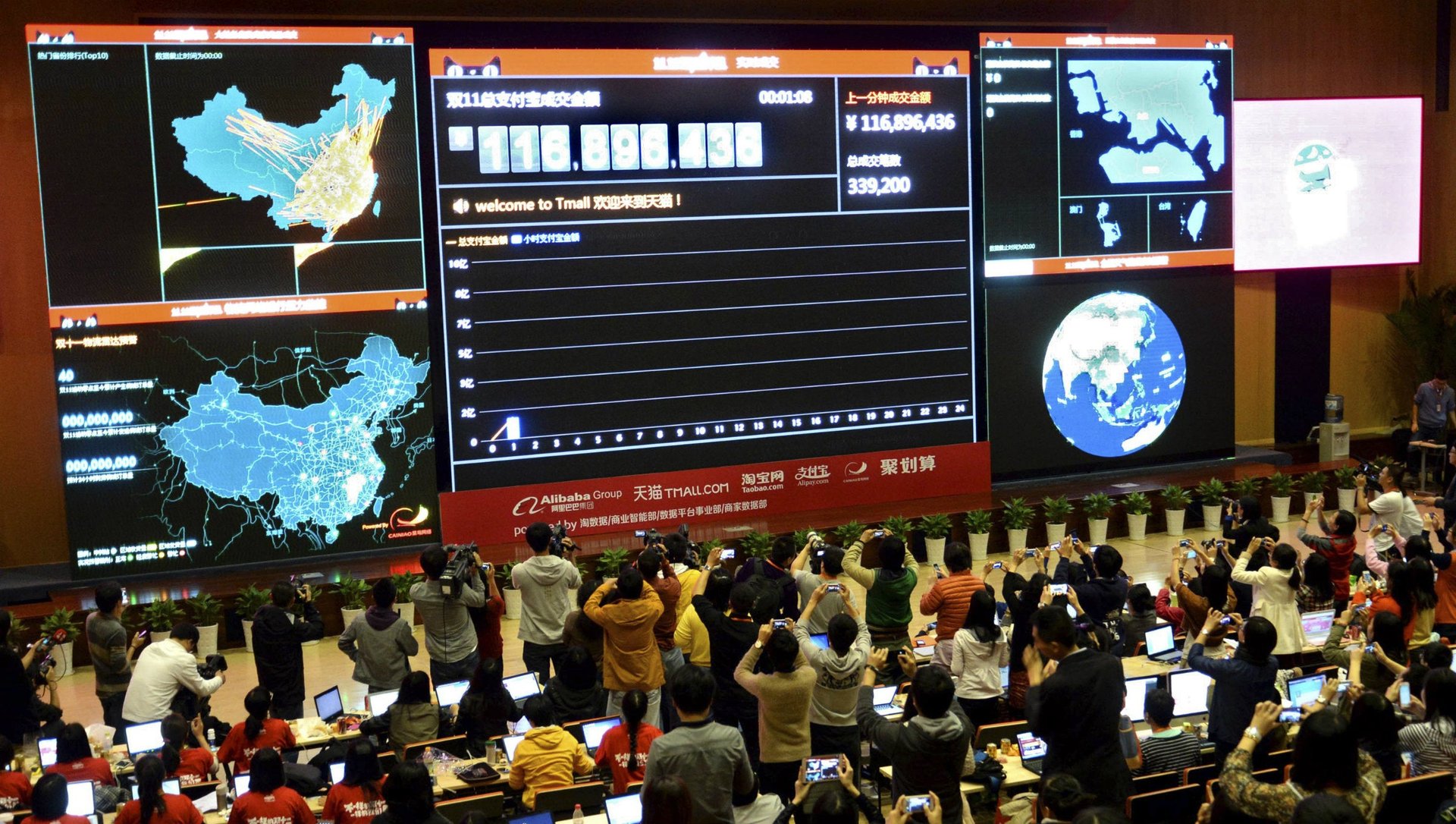China’s unmarrieds spent nearly $6 billion in one day to feel less lonely
On Nov. 11, China’s singles celebrated “Double 11,” an anti-holiday started in the 1990s as a university student embrace of bachelorhood, which was craftily transformed in 2009 into the world’s biggest online shopping event.


On Nov. 11, China’s singles celebrated “Double 11,” an anti-holiday started in the 1990s as a university student embrace of bachelorhood, which was craftily transformed in 2009 into the world’s biggest online shopping event.
By 8:42am, online sales had surpassed “Cyber Monday,” the US’s Monday-after-Thankgiving shopping frenzy that reached $1.5 billion last year. By noon in China, “Double 11” sales had hit 17.5 billion yuan ($2.9 billion) and by 1pm they had matched last year’s record of $3.1 billion, according to Alibaba, which dominates online retail in China. At 9:20pm in China they hit $4.9 billion, and by 11pm they had reached $5.4 billion, well over predictions of $5 billion for the entire day. When the day ended, the grand total was $5.8 billion.
The sales tick-tock was gleefully broadcast by Alibaba, which may go public next year, on Twitter, LinkedIn and China’s SinaWeibo, as well as closely covered by dozens of journalists in a press room in Hangzhou, the company’s headquarters.
As sales grew, Alibaba became a trove of somewhat puzzling statistics: Within the first hour, enough brassieres were sold to “form a pile taller, and arguably more alluring, than three Mt. Everests” (presumably stacked one on top of the other); the two million pieces of underwear sold in the first hour would stretch for 1,864 miles “if laid end to end.”
The percentage of single people of “marriageable age” has risen sharply in China in recent years, and while bra sales were high, the number of singles is disproportionately skewed towards men, thanks to the a historical preference for male babies. Today’s shopping holiday is also called “Guanggun Jie,” or bare branches, a term for the estimated 50 to 60 million unmarried, “excess men” in China who may never find mates.
Maybe it’s not surprising that the best-selling items were those that guaranteed they’d be a little less lonely.
By midday in China on Double 11, fast-growing phone manufacturer Xiaomi’s online store was the top-selling retailer, Alibaba said, and the top four products sold were all made by Xiaomi. In just the opening three minutes of the Nov. 11 sale, Xiaomi sold 110,000 of its new Mi 3 phones and another 330,000 of its Hongmi phone, for a transaction value of about 178 million yuan ($2.9 million).